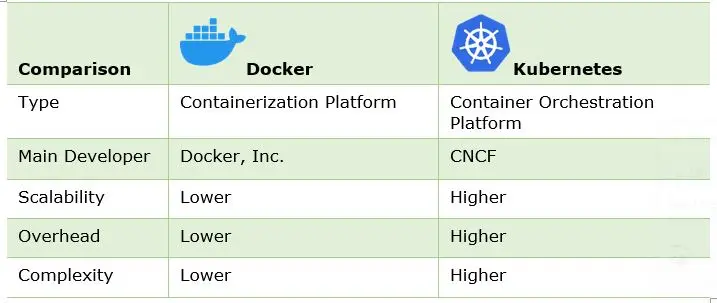

Docker and Kubernetes are both open-source container platforms that enable the packaging and deployment of applications and their dependencies into self-contained units. Containers are increasingly popular for deploying industrial edge applications because of their scalability and flexibility, as well as their lower resource requirements than traditional virtualization technologies. But how do the two platforms compare?
The Docker containerization platform’s lightweight and efficient containerization technology enables rapid deployment and portability of applications across different industrial edge environments. It offers excellent support for building and managing individual containers, making it excel in scenarios where a single or a few containers need to be deployed. Docker’s functionality can also be expanded with optional add-ons, including adding orchestration capabilities. Some industrial edge suppliers that have incorporated Docker support into their offerings include Belden, Cisco, and Cradlepoint.
Kubernetes is a powerful container orchestration platform that excels at managing large-scale containerized applications, making it suitable for more complex deployments. Kubernetes offers advanced features such as automated container deployment, scaling, load balancing, and self-healing capabilities. It provides a robust infrastructure for managing container clusters and ensures high availability and fault tolerance, at the cost of increased complexity and need for management overhead. Kubernetes support is typically offered by traditionally IT-oriented platforms, such as AWS EKS, Microsoft Azure Kubernetes Service (AKS), Google Cloud GKE, and from software firms such as Red Hat and VMware. It is also increasingly deployed in industrial automation supplier edge solutions, such as the Siemens Industrial Edge Management platform and ABB Edgenius.

Note that Docker and Kubernetes need not be considered mutually exclusive technologies. They can be utilized in tandem with one another, such as by using Kubernetes to orchestrate multiple host devices running Docker container instances.
Keep up with ARC’s research on the industrial edge here: Digital Transformation at the Industrial IoT Edge | ARC Advisory Group (arcweb.com).

